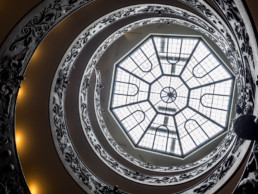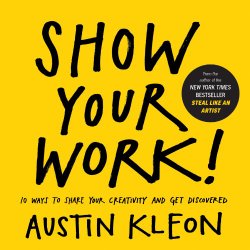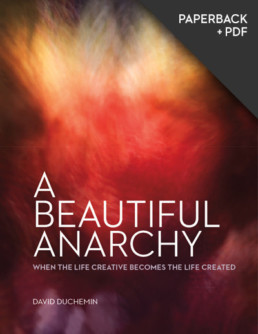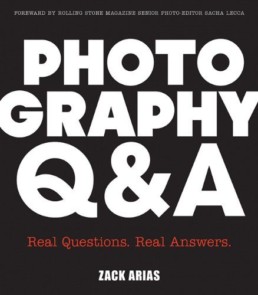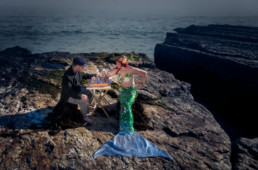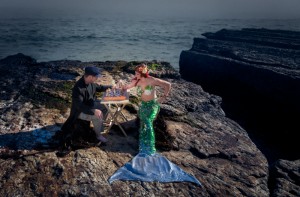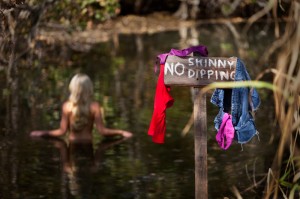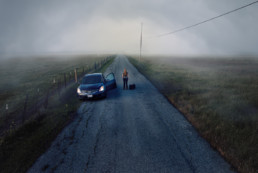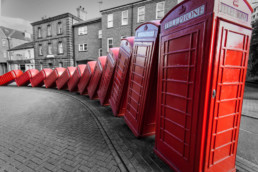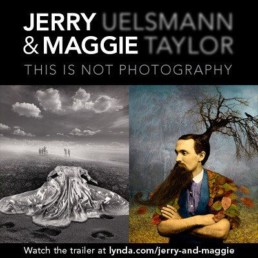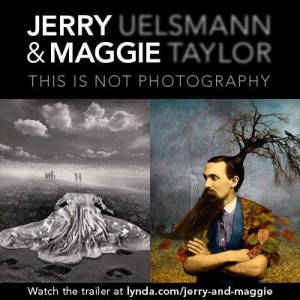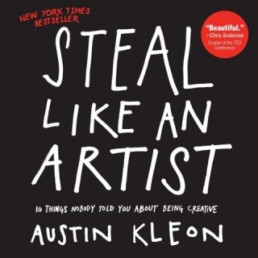Improve Your Photography - Take a Workshop
I just got back from Lake Powell where I participated in the Dynamic Nude Workshop held there by Joel Belmont. Joel does several workshops at Lake Powell and this one was for advanced photographers, meaning there was not going to be a lot of instruction, instead Joel would take us to various locations and we would plan our own shots. This was fine by me as I was mainly taking the workshop for access, and didn't really expect to learn something, but a funny thing happened as it does on all workshops.... I actually learned something and my photography improved as a result.
Marinating in Photography
My Dad used to go to 3-day or 5-day golf workshops and always played better as a result. He pointed out to me that when you are focusing on learning and hitting 1000's of golf balls a day you can't help but get better. Rarely would you go out and hit that many golf balls in a day on your own. The same thing happens with photography workshops, from the time I wake up until the end of the day when I go to sleep I am concentrating on nothing but photography. We get up and shoot, come back edit photos, go shoot again in the afternoon, come back and edit photos, do a photo critique and go to bed. I call it "Marinating in Photography", because I am surrounded by nothing but the pursuit of photography all day. No distractions, just shoot, edit, repeat. I always find that my vision, my way of seeing, my editing skills all improve as a result of the non-stop pace of a good workshop.
Hanging Out With Your Tribe
The other photographers at a workshop are my people, they understand me and the issues that I face in photography, we can have deep meaningful conversations about photography and I always learn something about photography from my peers at workshops. During this recent workshop at Lake Powell one of the participants showed me his simple technique for making a nude image stand out in a black and white image and it blew my mind and made me a black and white convert. (I'll share the technique in an upcoming blog post. Subscribe so you don't miss it :) ).
During our editing sessions there was a constant sharing of techniques, approaches. Every photographer thinks about an image differently and I learned something from each and every one of the participants at the workshop. Many workshops we edit alone in our hotel rooms each night, but I found I got so much more out of the workshop by having these group editing sessions. I'm going to seek this out for future workshops.
Sharing and Critique
I have often discussed the value of good critique, it is how I learned to be a photographer. I also see it through the growth of my apprentices in The Arcanum, every single one of them has grown as a result of the critique they receive from me. At workshops the critique sessions are extremely valuable and not for the reason you might think. Yes, you get feedback on your image, but for me the real value comes from seeing the work of others. Most of the time they are at the same location as I am, standing next to me, taking images of similar subjects and their images look nothing like mine! I learn to see in different ways. That is huge! We tend to get stuck in ruts and follow familiar patterns, seeing someone else's approach and how they look at the world helps me break out of my traditions and standard patterns and try new techniques.
Recharging Your Creative Battery
I always come away from a workshop reinvigorated and full of creative ideas and shots I want to pursue. Our creativity and passion levels ebb and flow and it can often be a struggle to get back in the swing of things and get out there and take photos that are meaningful to me. Workshops are always the kick in the butt I need to get me going again.
Next Workshop
I'm already looking for my next workshop to sign-up for. What is your favorite?
Cover photo courtesy of Ryan Fenix Sumner. Used with his permission.
Fill Your Creative Pantry
Visit a Museum
Be a Couch Potato
Surf the Web
Take a Hike
Look at the Pictures
Let It Simmer
Book Review: Show Your Work
This is the second book by Austin Kleon, I reviewed his first book "Steal Like an Artist" back in April 2012. This new book Show Your Work!: 10 Ways to Share Your Creativity and Get Discovered is tips and suggestions about how to share your work online.
Finding an Audience
As frequent readers of my blog know I write a lot about finding an audience for your work. In this day and age when there are so many artists sharing their work on the internet it can be difficult to get seen and find those people who will truly connect with your work. This gives a lot of tips on how to find this audience and while a lot of them are common sense, listen to your audience, don't hoard your work, don't spam, it never hurts to be reminded.
Motivation
More important than giving me tips on how to find my audience, this book provided me with motivation. It makes we want to get out there and share my work more, connect with fellow creatives, and just get out. This is exactly the sort of thing that also makes me more creative and want to create more. It's a self-perpuating cycle that happens to be going the direction I want to go.
This is an easy read and well worth the time. Pick up a copy and then let me know how you liked it.
Book Review - A Beautiful Anarchy
A Beautiful Anarchy: When the Life Creative Becomes the Life Created by David duChemin is probably one of the best books I have read this year. It talks about where creativity comes from, why the muse often leaves us, and how do we get her back. This is a very personal book and it mirrored many of the creative issues I and all creatives are plagued with. It is not about photography per se, although there are a fair number of references to photography, it applies universally to any artist. This book gives a road map so you can take charge of your creative life and become more focused in your art.
If you have read any of David's other works there will be some repetition, but repetition is a good thing. It is so easy to forget the lessons and fall back into feeling uninspired and not knowing where your art is taking you. This is the sort of book I will re-read over and over until the lessons are a part of who I am.
In case you haven't figured it out I found this book inspiring and I highly recommend it to all creative artists.
My Photographs Suck, a Review of Zack Arias' New Book
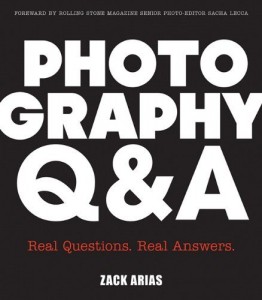
My Photographs Suck
I often look at the photos in my portfolio and say to myself, "My Photographs Suck". They didn't suck when I took them, they didn't suck when I was post-processing them, the didn't suck when I posted them to my various social media and photo sharing sites like 500px or ModelMayhem. But after a few weeks go by and the emotional high of the shoot has worn off, I start to see the flaws, the piece of hair I should have cloned out, the bright spot in the upper left I should have darkened, the awkward left arm of the model. Man this photo sucks!
Real Questions. Real Answers.
Why I'm Afraid To Take Photos
Earlier this month (July 3rd) Jeremy Cowart posted the following on Facebook "Just realized it's now been over a year since I had my biggest and best idea to date. Still terrified of it though. Will pursue one day. Sigh."
I realized it has been almost almost a year since I executed my last big photo idea and when I stopped to think about why I realized it is because I'm afraid, just like Jeremy.
What am I afraid of?
I love shooting big concepts. It's why I shoot and I constantly have ideas and am coming up with awesome new concepts but I never seem to get around to executing them. I often blame it on not enough time, or the hassle of finding a model/crew, etc. But the bigger reason is my fear of failure. I'm afraid that the image I take won't be as great as the vision in my head. This paralyzes me and keeps me from pursuing my ideas. I want to make EPIC photos, and am afraid that I will end up with just an average photo.
Why do I feel this lack of ability? Why do I think that I can't pull off an Epic photo? Because I've failed in the past. Every failure makes me that much more afraid of the next one.
In my head I have a vision of what the photo is going to look like, I plan, I pull together a crew to assist me, I schedule the shoot, and go shoot it. I then get back to my computer and look through the photos and they are just so-so. They look nothing like the awesome photo in my mind. Sometimes I will salvage something, (which I talked about in my post Turning a Crappy Photo Into a Keeper), but I'm often disappointed.
My Failures
So why do they fail? Here are examples of some big concepts that just didn't work.
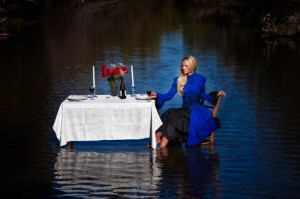
The above image was a failure because I took it midday and the lighting sucks. This was just the result of poor planning. I knew the midday lighting was not ideal but thought I would be able to "recover" it in Photoshop. I wasn't able to.
I really liked this concept, and again it fails because of the poor lighting. I had 2 concepts to shoot this day and I wanted to save sunset for the 2nd concept. So the lighting was not ideal for this earlier concept. Lesson learned, don't combine shoots. It's a ongoing problem. I invest a lot of time in setting up the shot and recruiting the models and assistants so I want to maximize that effort, however I've never been happy with the first concept when I try to shoot more than one.
This shot is a failure because the depth-of-field is too shallow. My vision was to have the girl out of focus but not this out of focus. It was very difficult to tell on the camera's LCD how out of focus it was. I should have bracketed my shots and tried some with different apertures instead of shooting everything wide open.
So what do I do?
Some fear is good, it means I'm pushing myself, stretching myself, expanding my photographic horizons, which is going to make me a better photographer. But this paralyzing fear serves no purpose. So what am I going to do about it? I'm going to fight through it. I am to put some shoots on the calendar and go shoot them. The fear is good, it means I'm pushing myself, and that is what is going to take my photos to the next level. I may fail, or I might make that EPIC photo but I won't know until I try.
So what do you do to fight though your fear of failure?
Gregory Crewdson, Fallen Idol?
When I discovered the work of Gregory Crewdson, a few years ago, I was in awe. His work resonated with me, I believe partly because it was the style of work that I found myself doing in my own photography. I want to make photos that look like a snapshot from a movie, that tell a story, that suck the viewer in and make them question what the image is about. The photo above was inspired by Gregory's work and I was very pleased with the end result. When I show this photo, people often comment that it is very reminiscent of Crewdson's work which I take as a compliment.
Gregory Crewdson Documentary
So when I saw that there a documentary about Gregory Crewdson and his work (Gregory Crewdson: Brief Encounters) I immediately found it on Netflix and started watching. However as I watched I became more and more depressed. Here was my photography idol, the man who's style I want to emulate, and the more I watched the sadder I got. After a while I stopped and asked myself why? Why, is watching him create some of my favorite photos so depressing? It turns out there was not one single reason for this sadness, but many.
Crewdson Shoots Are Huge
Crewdson has a huge budget, many of his shoots are done on a sound stage with a crew of consisting of hundreds of people who build a complete set, find the props, paint the set, bring in snow, dirt, mud, etc. to achieve just the right look to match Gregory's vision. At one point he mentioned that the one shot was costing $100K.
How can I as a lone photographer ever hope to match that achieve photos that rival his work on my non-existent budget and crew of one?
Crewdson Doesn't Actually Do Photography
Gregory doesn't actually click the shutter, he has a director of photography who does that for him, because he does not want to be behind the camera. He doesn't do post-processing, he has a team who does that for him. He is basically a producer/director. He has the vision, but he directs his team to make that vision into a final image. My first thought when I realized this was that he is not a photographer, and I was disappointed by that. If I'm going to look up to a photographer shouldn't he be an actual photographer? This bothered me for awhile, but after some reflection I realized he is still a photographer, photography does not have to be about actually clicking the shutter and doing the post-processing, it is more about transferring the vision in your mind onto a photo, the steps in between neither do or don't make you a photographer.
Turning Depression into Inspiration
After a day of processing my thoughts I turned them around and instead of being depressed I became inspired. The documentary shows Gregory at the peak of his career, he didn't start off with huge crews and $100K/photo budgets, he started where I am. Working by himself, making photos out of the scenes in front of him. I can do that, I do, do that, and if I keep at it, perhaps one day I will be shooting at his level. There is nothing stopping me.
What Do You Want From Your Photography?
For the past couple of years I've been struggling with my photography and what I want to be when I grow up as a photographer. I've tried a few avenues, made goals to publish a book, be in a gallery, etc. but I've come to realize that these were not really what I was seeking, or if they were it was just a portion of a grander whole. So what do I really want for my photography? I want my photography to be seen. I want people to look at it and have an emotional reaction. I want to be proud of my work. I want people to remember my work and seek out more. I want my photography to be memorable. I want my photos to be loved by others just as much as I love creating them. And really isn't this what most serious photographers are looking for, an AUDIENCE?
Part of what as made this so difficult is I was searching for a single audience for my work. This really came into focus when I took a workshop with John Paul Caponigro in March of 2011 (a life changing event, I've talk about it some here). He stressed that I needed to create cohesive bodies of work, that build on each other. So instead of shooting still life's, Pinup, glamour, landscapes, and everything else I was shooting at the time, I should pick one and make that be my focus. That is where this struggle started, I could not decide which of my bodies of work to pursue, I started thinking of them as which would be more marketable or please more people and ignored my inner passion to shoot all of these things. My creativity seemed to dry up and I felt like I was forcing my photos to fit into some specific unknown project.
It took another workshop, this time by Brooks Jensen publisher of Lenswork Magazine to bring clarity to the path I should be taking. Brooks pointed out that John Paul's model was the correct way to become an artist in the past, but it's not the only way and in fact it a fading view of how to become an artist in today's world. Brooks proposes that you can find an audience for any type of work and that it's OK to have disparate projects and multiple audiences. It may take a bit more work to cultivate multiple audiences, but it is doable. Instead of trying to have a consistency and focus on only one type of photography I feel free to shoot whatever project I want and then find the appropriate audience for that project. This has completely changed the way I now think about my photography and I'm excited now to pursue my passion again.
What do you want from your photography?
This is Not Photography
This is a recent documentary about Jerry Uelsmann and Maggie Taylor. If you are not familiar with Jerry's work you should visit his web site http://www.uelsmann.net/. He was creating interesting and artistic composites in the darkroom, long before Photoshop came along. His work has always been and inspiration to me and watching this documentary was fascinating. It really got my creative juices flowing and I've already come up with a dozen new photo concepts.
There have been a few public showings of the film, but can also watch it on Lynda.com at
http://www.lynda.com/Photography-tutorials/Jerry-Maggie-photography/90633-2.html
If you aren't already a member of Lynda.com (and you should be), then this is a good excuse to give it a try.
Steal Like An Artist - The Book
A year ago I did a blog post about an article on Austin Kleon's web site where talked about 10 ways to unlock your creativity. He has now expanded on this idea and written a book called "Steal Like an Artist". I stumbled across this book while in the bookstore and have thoroughly enjoyed it. It's a relatively quick read but it is packed with ideas on how to be more creative and how to channel your energy in your creative endeavors.
I highly recommend it.
Steal Like an Artist: 10 Things Nobody Told You About Being Creative


